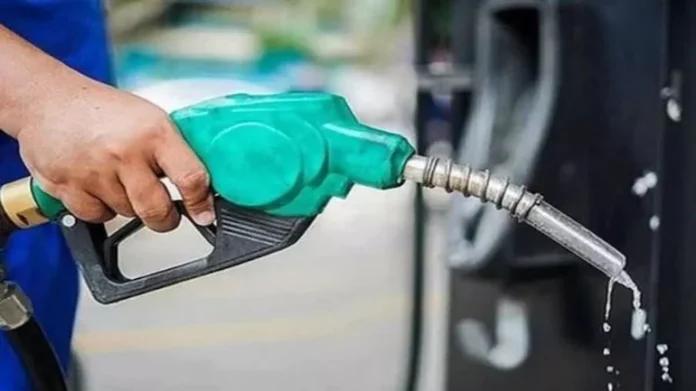Oil marketers under the Petroleum Products Retail Outlets Owners Association of Nigeria (PETROAN) have opposed the decision of Dangote Petroleum Refinery to sell refined petroleum products in dollars.
PETROAN has urged the Federal Government to intervene and prevent the Lagos-based refinery from conducting domestic transactions in foreign currency.
The association’s president, Billy Gillis-Harry, voiced these concerns on Tuesday during a media briefing, following Dangote Refinery’s recent export of approximately two million barrels of aviation fuel to the United States.
The refinery’s decision to switch from naira to dollars for domestic sales follows the Federal Government’s suspension of crude supply to the facility in naira. This has triggered anxiety among marketers, leading to panic buying and concerns over potential fuel scarcity and price hikes.
“Selling fuel in dollars will harm the Nigerian economy, increase pressure on the foreign exchange market, and worsen inflation,” Gillis-Harry stated. He stressed that PETROAN remains firmly opposed to the practice of dollar-denominated sales within Nigeria and urged the government to enforce transactions exclusively in naira to protect the economy and Nigerians’ welfare.
PETROAN also highlighted Nigeria’s ongoing struggle to meet domestic fuel demand despite the operationalisation of three local refineries. These include two refineries managed by the Nigerian National Petroleum Company Limited (NNPC) and the 650,000 barrels-per-day Dangote refinery. Additionally, several modular refineries and importers are contributing to the supply chain.
However, PETROAN noted that the combined production capacity of approximately 835,000 barrels per day remains insufficient to meet national demand. Consequently, the association advocated for maintaining the window for fuel importation to ensure stable supply and competitive pricing.
“Encouraging local production will enhance energy security and create jobs. However, until domestic production capacity is sufficient, allowing imports will help stabilise the market and keep prices in check,” PETROAN stated.
The association reassured the public that there is no fuel shortage despite recent panic buying, urging Nigerians to remain calm. It also called on the Ministry of Petroleum Resources and regulatory agencies to implement policies that guarantee a steady and sustainable fuel supply.
Meanwhile, Dangote Refinery’s export of aviation fuel (Jet A1) to the United States is set to reshape global fuel trade dynamics. Data from ship-tracking service Kpler revealed that six vessels carrying approximately 1.7 million barrels of jet fuel from the refinery arrived at US ports this month.
Another vessel, Hafnia Andromeda, is scheduled to deliver about 348,000 barrels of jet fuel to the Everglades terminal on 29 March 2025.
A Reuters report noted that US jet fuel imports are expected to hit a two-year high in March, driven by Dangote’s shipments. The increased supply is anticipated to reduce jet fuel prices in the US during the summer travel season.
“The 650,000 barrels-per-day Dangote refinery, Africa’s largest, is emerging as a key player in the Atlantic Basin fuel market, challenging European refineries and reshaping global trade patterns,” Reuters stated.
Trade analysts suggest that Dangote’s entry into the US market was facilitated by a temporary shutdown of the Phillips 66 Bayway refinery in New Jersey. However, the arbitrage window is expected to close soon as US jet fuel inventories rise.
In a related development, the Manufacturers Association of Nigeria (MAN) has welcomed Dangote’s production of polypropylene, predicting that it will revitalise Nigeria’s textile industry and save the country $267 million in import costs annually.
MAN’s Director-General, Segun Ajayi-Kadir, stated that Nigeria currently imports 90% of its annual polypropylene needs, amounting to about 250,000 metric tonnes. Dangote’s new production capacity will eliminate this dependency, reduce costs for manufacturers, and generate foreign exchange.
“This is a game-changer for Nigeria’s manufacturing sector,” Ajayi-Kadir said. “With local production of polypropylene, manufacturers in the textile, plastic, and furniture industries will benefit from reduced costs and improved efficiency.”
Ajayi-Kadir also called on the Federal Government to provide incentives to support local production, emphasising that this would encourage investment and contribute to Nigeria’s ambition of building a $1 trillion economy.
Dangote’s $2 billion petrochemical plant in Ibeju-Lekki, Lagos, has a production capacity of 900,000 metric tonnes per year and is expected to produce 77 grades of polypropylene. The plant aims to enhance Nigeria’s industrial base, create jobs, and boost foreign exchange earnings through exports.
“The success of this project will position Nigeria as a net exporter of polypropylene and reduce the country’s reliance on imports from Saudi Arabia, South Korea, and China,” Ajayi-Kadir concluded.













